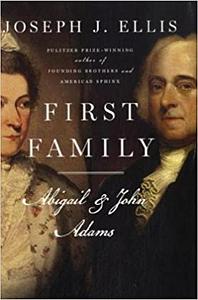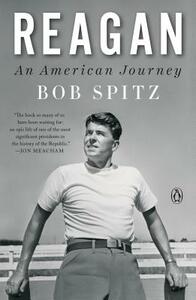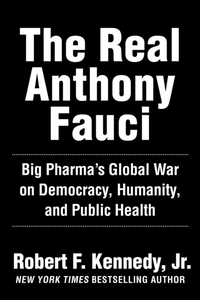Take a photo of a barcode or cover
manish25's Reviews (113)
informative
fast-paced
As someone who thoroughly enjoyed David McCullough’s John Adams, I came to Joseph Ellis’s First Family: John and Abigail Adams with high expectations and a fair amount of background knowledge.
While I genuinely liked the book and appreciated Ellis’s sharp prose and compact storytelling, much of the content felt familiar—almost like a curated distillation of McCullough’s more comprehensive biography.
While I genuinely liked the book and appreciated Ellis’s sharp prose and compact storytelling, much of the content felt familiar—almost like a curated distillation of McCullough’s more comprehensive biography.
That said, Ellis’s focus on the Adamses’ marriage was a thoughtful shift in emphasis. Their correspondence, which forms the emotional core of the book, is treated with genuine respect and insight. Ellis clearly admires the intellectual partnership between John and Abigail, and his effort to frame them as America’s “first power couple” is compelling.
However, I did find myself wishing the book had gone even deeper into the nuances of their relationship. For a work that sets out to place their marriage at the center, it sometimes felt like a highlight reel rather than a deep dive. There were moments—particularly during John’s long absences and Abigail’s political evolution—that could have been unpacked further.
In the end, First Family is a worthwhile and enjoyable read, especially for those new to the Adams legacy. For readers already familiar with the terrain, it’s a well-crafted but slightly familiar echo of stories we've already heard, albeit from a slightly more intimate angle.
informative
fast-paced
India in the Persianate Age, 1000–1765 by Richard M. Eaton offers a sweeping and polished cultural history of South Asia, tracing the profound influence of Persianate language, institutions, and aesthetics. Eaton’s talent lies in his synthesis—drawing together administrative history, courtly culture, and literary exchange into a coherent narrative. If you’re looking for a panoramic survey that highlights cultural fusion and the endurance of Persianate norms, this book is extremely useful.
Yet much of the material feels like well-trodden territory—common knowledge to the informed reader. Eaton leans toward a liberal, syncretic framing of Muslim rulers as largely benevolent administrators, emphasizing integration over confrontation. This perspective means darker realities—religiously sanctioned mass violence, forced conversions, temple desecrations, and jihadist campaigns—receive minimal, cautious treatment. The suffering and upheaval experienced by Hindu communities across centuries are not systematically explored. It briefly touched on the torture and execution of Hindu kings (such as blindings), as well as the mass ritual suicides of womenfolk, but that's about it.
Bottom line: Eaton’s work is meticulously researched and elegantly written, but selectively interpretive. It’s ideal for readers interested in cultural history and Persianate legacies, but disappointing for those expecting a forthright reckoning of medieval atrocities and communal conflict.
informative
inspiring
reflective
slow-paced
Bob Spitz’s Reagan: An American Journey is nothing short of a tour de force. With the depth of a historian and the storytelling finesse of a novelist, Spitz delivers an illuminating, balanced, and richly detailed portrait of one of the most enigmatic and consequential figures in American history.
What makes this biography exceptional is its even-handedness. Spitz neither canonizes Reagan nor condemns him—he presents him as a deeply complex man: charming, optimistic, and principled, yet often aloof, elusive, and shaped more by myth than introspection. From his Midwestern childhood to Hollywood stardom, from the governor’s mansion in Sacramento to the White House, every chapter in Reagan’s life is explored with nuance and clarity.
Spitz’s research is impeccable, drawing on a vast array of sources—interviews, archival materials, and contemporaneous accounts—to build a compelling narrative that neither drags nor oversimplifies. He doesn’t shy away from the contradictions in Reagan’s character or presidency: the public warmth vs. private detachment, the "Great Communicator" who often delegated details, the Cold Warrior who eventually became a peacemaker.
What’s perhaps most impressive is Spitz’s ability to make Reagan’s era feel immediate and alive. He captures not just the man, but the moment—offering context, commentary, and cultural insight that help readers understand why Reagan mattered, not just what he did.
This is biography at its best: sweeping in scope, intimate in detail, and deeply humanizing. Whether you admire Reagan, oppose his politics, or are simply curious about the man behind the myth, Reagan: An American Journey is essential reading.
dark
informative
inspiring
reflective
medium-paced
When I first read A Promised Land—Barack Obama's own memoir—I was midair, somewhere between Australia and the United States, in the midst of a life transition that mirrored, in some small emotional way, the story of reinvention at the heart of Obama's own journey. I was struck by his voice, his introspection, his intellect—but even then, I sensed there was more beneath the surface, especially regarding his formative years in Indonesia and Hawaii. Those early chapters of his life felt touched on, but not fully opened.
David Maraniss’s Barack Obama: The Story is, simply put, the book I had been waiting for. A meticulous, beautifully written, and empathetically reported biography that fills in the gaps Obama’s own memoir left behind. Where A Promised Land was presidential, reflective, and filtered through the lens of legacy, The Story is rooted in origin—complex, unflinching, and often revelatory.
Maraniss dives deep not only into Obama’s childhood in Hawaii and Indonesia but also into the histories of both his parents—Ann Dunham and Barack Obama Sr.—unearthing the ideologies, traumas, ambitions, and contradictions that shaped them, and in turn, their son. I found the narrative of Obama’s mother especially moving: her intellectual curiosity, her sense of justice, and her loneliness, raising a son caught between cultures. Equally fascinating—and at times, troubling—was the portrayal of Obama Sr., a brilliant but deeply flawed man whose charm, ambition, and lasciviousness left complicated marks on those around him.
This isn't a hagiography. Maraniss portrays Obama in full dimension—bright, conflicted, self-aware, and at times, lost. The book paints the young Obama not as a predestined icon but as a searching, shape-shifting individual trying to find his place in a fractured world. We see him navigating identity, race, love, and belonging in a way that feels intimate and relatable, yet undeniably profound given what he would go on to become.
It’s also worth noting just how readable this book is. Maraniss writes with a novelist’s eye for detail and a historian’s command of context. He doesn’t just chart Obama’s path—he transports us into it. Whether it’s the streets of Menteng Dalam, the beaches of Oahu, or the dorm rooms at Occidental and Columbia, the settings breathe and pulse with life.
If A Promised Land gave us the story Obama wants us to remember, The Story gives us the fuller, messier, and more fascinating truth. For anyone interested in the real roots of America’s 44th president—or anyone who simply appreciates masterful biography—this book is essential reading.
Five stars? No. Ten.
informative
reflective
medium-paced
I can't recommend The Americans trilogy by Daniel J. Boorstin highly enough. All three volumes—The Colonial Experience, The National Experience, and The Democratic Experience—together form one of the most compelling and insightful explorations of American identity I've ever read. Boorstin doesn't just recount history—he reveals it, through the lens of innovation, everyday life, and the often-overlooked cultural and technological shifts that shaped who we are.
Of the three, The Democratic Experience may be the most engaging, simply because it brings us closest to the modern era and offers such vivid examples of how democracy manifests in daily life. One story that really stuck with me was how Nevada radically simplified its marriage and divorce laws. I had no idea that legal reform on such a practical level helped transform Las Vegas into a hub for quick marriages and divorces, symbolizing the growing American emphasis on convenience, individual freedom, and personal reinvention. Boorstin connects these dots so clearly and compellingly—it’s never just trivia; it's part of a larger picture.
This trilogy doesn’t just teach history—it deepens your understanding of what it means to live in a democratic society. Boorstin’s ability to see history not as battles and presidents, but as habits, inventions, and everyday choices, makes his work timeless. A must-read for anyone curious about how America became America.
informative
medium-paced
Daniel J. Boorstin’s The Americans: The National Experience is a phenomenal read—engaging, insightful, and richly layered with ideas that linger long after the final page. I genuinely enjoyed every bit of it. Boorstin has a remarkable gift for uncovering the character of a nation through the seemingly mundane details of daily life, and this book showcases that strength in full force. His prose is accessible yet intellectually satisfying, and his observations on American innovation, identity, and adaptation are thought-provoking throughout.
That said, my only gripe—and the reason this isn’t a perfect 5-star rating—is the way the book jumps between time periods. One moment you're in the early 1800s, then you're fast-forwarded to the mid-1850s, detoured into the Civil War, whisked into the Depression era, and suddenly dropped into the Revolutionary War. The non-linear structure, while thematically purposeful, made it a bit disorienting at times. It occasionally disrupted the flow and made it harder to stay fully engaged with the historical narrative.
Still, despite that, this might be the best installment in Boorstin's trilogy. It captures the restless spirit and evolving character of America in a way that’s both sweeping and intimate. Highly recommended for anyone interested in American history—not just the events, but the lived experiences that shaped the nation.
hopeful
informative
reflective
fast-paced
Jon Meacham’s American Gospel: God, the Founding Fathers, and the Making of a Nation is a thoughtful, eloquent exploration of how religion has shaped—and been shaped by—the American political experiment. With his signature clarity and measured tone, Meacham masterfully traces the thread of faith through key moments in U.S. history, making a convincing case for the enduring importance of a public religion grounded in moral consensus rather than dogma.
The book shines in its argument that America was never meant to be a purely secular state, nor a theocracy, but rather a place where religion informs civic virtue without dictating policy. Meacham’s use of historical anecdotes and quotations adds depth and richness, and his reflections on figures like Lincoln and Kennedy are particularly powerful.
That said, my only real gripe—and the reason for the missing fifth star—is that the book doesn’t delve as deeply as I had hoped into the personal religious philosophies of the Founding Fathers. While Meacham does touch on them, the discussion feels more surface-level than substantive. A more detailed analysis of their theological beliefs and how those influenced their politics would have made an already strong book even stronger.
Still, American Gospel is a nuanced and timely reminder of the balance between faith and freedom—a balance as vital today as it was at the nation's founding. Highly recommended for readers of American history, political thought, and religion in public life.
informative
fast-paced
Daniel J. Boorstin’s The Americans: The Colonial Experience is a compelling exploration of how early American values, habits, and institutions shaped the nation's identity long before independence was declared. Boorstin doesn’t just recount events; he masterfully interprets the colonial mindset and its long-lasting consequences, offering fresh insights that still resonate today.
One of the most fascinating aspects of the book for me was the contrast Boorstin draws between the Puritans of New England and the Quakers of Pennsylvania. The Puritans’ deep-rooted belief in education as a communal and moral imperative helped make Boston a beacon of academic excellence — a legacy that lives on, with the city home to some of the world's leading universities. In contrast, the Quaker emphasis on individual experience and egalitarianism led to a more pragmatic, blue-collar culture in Philadelphia. While that spirit certainly built a vibrant and industrious city, it also left Philly a step behind Boston in terms of educational institutions and influence.
Boorstin’s writing is clear, thought-provoking, and rich in anecdote, though at times it leans a bit too heavily on generalization, which is why I’m giving it four instead of five stars. Still, his ability to connect colonial values to modern American life is both illuminating and engaging.
I’m very much looking forward to continuing the trilogy with The Americans: The National Experience and The Americans: The Democratic Experience. If they’re anything like this volume, they’ll be equally rewarding reads.
The Real Anthony Fauci: Bill Gates, Big Pharma, and the Global War on Democracy and Public Health
informative
fast-paced
As a staunch libertarian, I’ve always been wary of government overreach—especially when it comes to personal freedoms and health autonomy. Reading The Real Anthony Fauci by RFK Jr. felt like peeling back the carefully curated facade of public health leadership to reveal a tangled web of political power, corporate collusion, and bureaucratic arrogance. Kennedy paints a deeply troubling picture of Fauci's career, particularly his handling of AIDS, the COVID-19 pandemic, and his ties to Big Pharma. While some claims may stretch credulity, the book is undeniably well-sourced and thoroughly researched, forcing even skeptics to take a second look at the narratives we were fed.
One of the most infuriating moments in my own life came when I was forced to take the COVID-19 vaccine—not out of personal conviction, but because it was a prerequisite for getting a U.S. visa. The coercion was subtle but suffocating. There was no real choice, just a bureaucratic ultimatum wrapped in public health rhetoric. Reading Kennedy’s book felt strangely validating. He gives voice to the unease many of us felt but couldn’t articulate while being labeled “anti-science” or “selfish” for daring to ask questions.
What the book does best is connect the dots: how federal agencies, pharmaceutical giants, media conglomerates, and even non-profits seemed to act in lockstep to control not just the narrative, but the science itself. Some parts do lean into the conspiratorial, and the tone can be alarmist at times—but given the unprecedented scale of government mandates during COVID-19, a bit of alarmism might be warranted. Whether or not you agree with every claim, it’s hard to walk away from this book without serious doubts about the integrity of the institutions that claim to protect us.
Overall, I give The Real Anthony Fauci 4 out of 5 stars. It’s an eye-opening, maddening, and deeply provocative read. Even if you don’t buy every assertion, the book succeeds in its core mission: to spark critical thinking and remind us that blind trust in authority—especially during a crisis—is never a virtue.
informative
tense
fast-paced
I thoroughly enjoyed Jefferson and Hamilton: The Rivalry That Forged a Nation by John Ferling. While the title might suggest a dramatic deep dive into the personal conflict between these two iconic figures, the book actually offers something broader—and, in many ways, more rewarding.
Rather than focusing solely on their infamous infighting, Ferling lays out a rich, side-by-side comparison of Alexander Hamilton and Thomas Jefferson: their backgrounds, political philosophies, ambitions, and influence on the shaping of the United States.
Rather than focusing solely on their infamous infighting, Ferling lays out a rich, side-by-side comparison of Alexander Hamilton and Thomas Jefferson: their backgrounds, political philosophies, ambitions, and influence on the shaping of the United States.
It’s clear that Ferling’s goal is to provide a balanced, dual biography, and he succeeds. Both men come alive on the page, not just as political opponents, but as individuals shaped by their experiences and convictions. Their rivalry is certainly present, but it serves more as a backdrop to explore the broader themes of early American politics.
Despite being more analytical than dramatic, I couldn’t put this book down. I finished it in a single day—Ferling’s writing is sharp, accessible, and compelling throughout. If you’re looking for a nuanced take on two of America's most complex founders, this book delivers. One star off only because the title is slightly misleading if you're expecting nonstop political fireworks. Still, a fascinating and worthwhile read.









